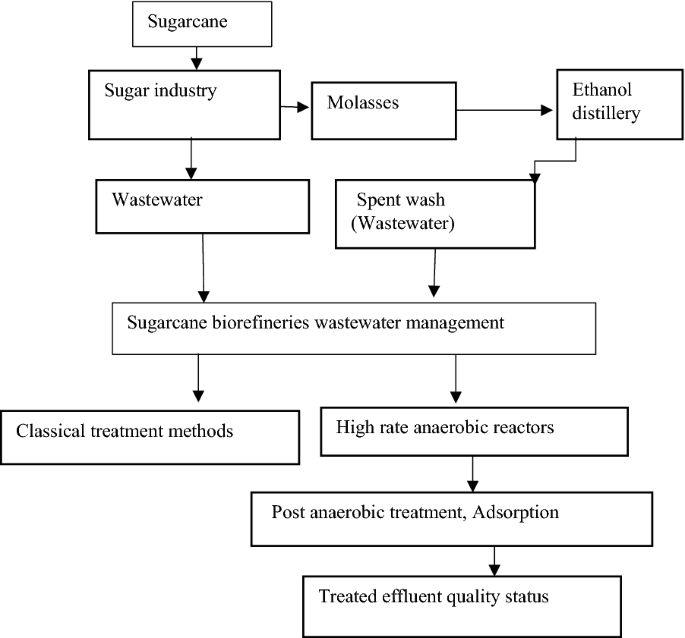Exploring the Environmental Impact of Products From Sugarcane
Exploring the Environmental Impact of Products From Sugarcane
Blog Article
Unlocking the Potential of Products From Sugarcane: a Comprehensive Overview
The possibility of sugarcane extends far past its standard use for sugar production. This guide explores the multifaceted applications of sugarcane, from power and eco-friendly materials to wellness products. By examining its trip from field to manufacturing facility, it reveals how sustainable techniques can transform waste right into useful sources. As markets seek environmentally friendly remedies, the concern continues to be: just how can these developments improve our strategy to agriculture and production?

The Trip of Sugarcane: From Field to Factory
Sugarcane undergoes a fascinating change as it travels from rich areas to dynamic factories. In the areas, the high, environment-friendly stalks are harvested, normally by mechanical means or manual work. Once reduced, the sugarcane is quickly moved to processing centers to ensure maximum quality. At the factory, the primary step involves squashing the cane to extract the sweet juice, which contains sucrose. Products From Sugarcane. This juice is after that filteringed system and clarified, getting rid of impurities. Following this, it undertakes evaporation to concentrate the sugar content, leading to formation. The resulting sugar crystals are separated from the continuing to be molasses via centrifugation. The sugar is dried and packaged for circulation. Throughout this journey, maintaining high quality and efficiency is vital, as the approaches utilized directly impact the product's final high quality. This improvement not just highlights the farming significance of sugarcane yet also its substantial duty in the international economic situation
Sugar and Its Derivatives: Greater Than Just Sweet taste
The transformation of sugarcane right into polished sugar opens the door to a wide variety of items and applications that expand beyond mere sweet taste. Sugar and its by-products, such as molasses, brown sugar, and sugar, play essential roles in different markets, including food, drugs, and cosmetics. In the food industry, these components boost flavors, enhance structure, and act as preservatives.Molasses, a result of sugar production, is rich in minerals and vitamins, making it an important component in natural food and animal feed. Glucose, a basic sugar stemmed from sugarcane, serves as a substantial power source in sports nourishment and is crucial in the production of confectionery. Additionally, sugar derivatives are made use of in fermentation procedures, adding to the manufacture of alcohols and other microbial products. Overall, the convenience of sugar and its by-products highlights their value past simple sweetness in day-to-day life.
Biofuels: Harnessing Power From Sugarcane

A significant part of worldwide biofuel production currently relies upon sugarcane, acknowledged for its high energy yield and efficiency in transforming sunlight right into biomass. This tropical crop works as a main resource for ethanol, a sustainable gas that can replace gasoline in vehicles. Sugarcane's capacity to create more ethanol per hectare than various other feedstocks, such as corn, contributes to its increasing appeal among biofuel producers.The fermentation procedure of sugarcane juice or molasses creates ethanol, which can be blended with nonrenewable fuel sources to lower greenhouse gas discharges. Furthermore, by using the residual bagasse from sugarcane handling, energy can be produced with combustion, further enhancing the sustainability of biofuel production. As countries seek to reduce environment change influences, sugarcane biofuels use an appealing service, bolstering power safety and security and advertising farming sustainability while supporting rural economic climates.
Biodegradable Plastics: The Lasting Different
Just how can markets shift to even more sustainable techniques when faced with expanding plastic pollution? One appealing remedy depends on eco-friendly plastics stemmed from sugarcane. Unlike traditional petroleum-based plastics, these bioplastics use an eco-friendly option that can significantly lower ecological effect. Made from sustainable resources, sugarcane-based plastics decay much more rapidly in numerous conditions, minimizing landfill buildup and marine debris.The production of biodegradable plastics not just addresses waste management challenges yet additionally straightens with the enhancing consumer demand for sustainable items. Industries embracing these products can improve their brand picture while contributing to a round economy. Furthermore, the change to eco-friendly options motivates advancement and financial investment in new technologies, fostering a greener market landscape.As a lot more business identify the advantages of sugarcane-derived plastics, the capacity for prevalent adoption boosts, leading the way for a more lasting future in product packaging and product design.
Pet Feed and Fertilizers: Making Use Of By-products
The results of sugarcane processing hold considerable potential for both pet nourishment and natural fertilizers. These results can be included into pet feed, providing crucial nutrients while decreasing waste. Furthermore, they can work as effective natural plant food alternatives, improving dirt health and wellness and promoting sustainable agricultural methods.
Byproducts in Animal Nutrition
While sugarcane is mainly valued for its sucrose web content, its results play an essential role in pet nourishment, particularly in the kind of animal feed and plant foods. The fibrous deposit known as bagasse, generated throughout the removal of juice, works as a beneficial source of roughage for livestock. This high-fiber material improves food digestion and advertises total wellness in ruminants. In addition, molasses, a byproduct of sugar refining, is abundant in power and can be used to supplement animal diet regimens, improving palatability and dietary worth. Vinasse, a fluid result from ethanol manufacturing, has crucial nutrients and can be utilized as a feed additive. In general, sugarcane by-products contribute significantly to sustainable pet nourishment techniques.
Organic Plant Food Options
Using sugarcane results prolongs past animal nutrition to include organic plant food alternatives that benefit farming methods. The coarse residues, such as bagasse and filter cake, act as reliable natural fertilizers, enhancing dirt wellness and improving crop returns. These materials are abundant in nutrients, consisting of potassium, nitrogen, and phosphorus, necessary for plant development. When decomposed, they boost soil framework, water retention, and microbial task, cultivating a sustainable farming ecological community. Additionally, utilizing sugarcane byproducts for fertilizing decreases dependence on artificial fertilizers, promoting eco pleasant agricultural techniques. By recycling these results, farmers can add to a circular economic situation while maximizing their efficiency and decreasing waste. This approach exemplifies ingenious approaches in sustainable farming, leveraging sugarcane's complete potential.
Health and wellness and Wellness: Nutritional Benefits of Sugarcane
Numerous studies highlight the dietary benefits of sugarcane, making it an important addition to a balanced diet. Rich in necessary nutrients, sugarcane includes considerable quantities of minerals, carbohydrates, and vitamins, specifically vitamin Potassium, c, and calcium. These parts add to general health, go to this site supporting immune function and bone strength.Moreover, sugarcane is a natural resource of anti-oxidants, which aid battle oxidative stress and inflammation in the body. Its high fiber content aids in food digestion, promoting intestine health and wellness and protecting against irregular bowel movements. In addition, sugarcane juice has actually been connected to hydration and power replenishment, making it an excellent selection for athletes or those involving in exhausting activities.Furthermore, the glycemic index of sugarcane is reasonably reduced, permitting a more steady release of power, which may be valuable for people managing blood sugar degrees. In general, incorporating sugarcane into one's diet plan can provide a renewing and healthy alternative for health-conscious individuals.
Technologies in Sugarcane Products: Future Trends and Possibilities
What advancements lie in advance for sugarcane items as sectors look for to enhance sustainability and customer allure? The future of sugarcane products is positioned for significant improvements, driven by the need for eco-friendly choices. Developments in bio-based product packaging, originated from sugarcane, are gaining traction, offering a sustainable replacement for traditional plastics. In addition, the exploration of sugarcane's bioactive substances is likely to lead to brand-new wellness supplements and functional foods, capitalizing on its all-natural benefits.Research into fermentation procedures might yield novel biofuels, better branching out sugarcane's energy. Moreover, the development of genetically modified sugarcane ranges guarantees boosted yields and resistance to pests, therefore supporting sustainable farming techniques. As consumers end up being more eco mindful, the assimilation of transparency in sourcing and production techniques will additionally play a crucial role in shaping the future of sugarcane items. Eventually, these technologies could redefine sugarcane's position in global markets.
Frequently Asked Questions
What Are the Ecological Effects of Sugarcane Farming?
The ecological impacts of sugarcane farming consist of deforestation, loss of biodiversity, soil degradation, and water contamination - Products From Sugarcane. Furthermore, too much pesticide and plant food usage can hurt environments, while monoculture techniques might bring about decreased strength versus climate modification

Just How Is Sugarcane Processed Into Different Products?
Sugarcane processing entails harvesting, squashing, and removing juice, which is then made clear and focused. The resulting syrup can be fermented for ethanol or crystallized for sugar, while fibers are utilized for bioenergy and various other items.

Exist Any Health Threats Linked With Sugarcane Consumption?
The question of wellness dangers related to sugarcane consumption highlights issues such as excessive sugar intake, prospective allergies, and intestinal issues. Small amounts is essential to minimize these threats while appreciating its nutritional benefits.
What Are the Economic Conveniences of Sugarcane Farming?
The economic benefits of sugarcane farming include task creation, enhanced agricultural productivity, and contributions to regional economic situations. Additionally, it sustains renewable resource manufacturing and offers different by-products that can improve productivity within diverse markets.
Just How Does Sugarcane Compare to Various Other Renewable Resources?
Sugarcane, as an eco-friendly source, shows higher efficiency in biomass manufacturing compared to many options. Its versatility enables various by-products, adding notably to sustainable techniques, financial growth, and minimizing reliance on fossil fuels. Glucose, a simple sugar acquired from sugarcane, offers as a substantial energy source in sports nutrition and is important in the manufacturing of confectionery. Sugarcane's capability to create more ethanol per hectare than other feedstocks, such as corn, contributes to its increasing appeal published here amongst biofuel producers.The fermentation procedure of sugarcane juice or molasses creates ethanol, which can be combined with fossil fuels to minimize greenhouse gas emissions. Furthermore, sugarcane juice has been linked to hydration and energy replenishment, making it an outstanding choice for athletes or those engaging in strenuous activities.Furthermore, the glycemic index of sugarcane is reasonably low, permitting for a much more steady launch of power, which may be beneficial for individuals taking care of blood sugar degrees. In enhancement, the exploration of try here sugarcane's bioactive compounds is most likely to lead to brand-new health supplements and useful foods, utilizing on its natural benefits.Research into fermentation procedures may generate unique biofuels, additionally expanding sugarcane's utility. The question of health and wellness threats linked with sugarcane intake highlights concerns such as too much sugar intake, potential allergies, and gastrointestinal problems.
Report this page